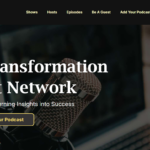A significant risk burdens almost every major organization in the world. Despite repeated efforts, they have been unable to conquer this resilient foe: tribal knowledge.
Most organizations do not document nor explicitly manage much of how they actually operate. This critical information, or tribal knowledge, is held solely in the minds of its employees and within the cultural traditions of the organization.
This store of vital and company-specific experience, expertise and practices often represents one of the organization’s most valuable, but unprotected assets – which is why finding a way to digitize it has now become a business imperative.
The Effort to Harness Tribal Knowledge
Executives have long understood that the organization’s tribal knowledge is often an important part of its operating model. And therefore, they realize that the ephemeral nature of tribal knowledge also represents a grave risk to the organization.
Until now, the only way to address this risk has been to painstakingly document these undocumented processes and practices — a flawed process, at best — and then attempt to deconstruct that information into a set of standardized processes that everyone can then follow.
But this process is so cumbersome and flawed that it almost never works. Instead, it often results in a bureaucratic mess that ends up inhibiting organizational agility and demoralizing the most innovative and knowledgeable people in the organization.
Digitizing Knowledge: The New Source of Competitive Advantage
While the battle over tribal knowledge has been going on for some time, the relatively slow rate of change and barriers to entry has somewhat protected organizations from its risks. The disruption of the digital era, however, has changed the game.
Today, an organization’s unique business processes, operating methods, and proprietary data are the chief drivers of competitive advantage — but only when the organization uses them to reimagine the customer journey, create a compelling customer experience, re-envision their business model, and continuously transform each of these as the market demands.
The unique understanding that an organization’s employees have about changing customers’ needs and how to leverage their unique processes, data and practices to meet them is the essence of the organization’s tribal knowledge — and is now its greatest source of competitive advantage. Those organizations that can harness it most effectively will be those that will thrive in the digital era.
The Rise of Digital Knowledge Technology
Fortunately for executives caught in this quagmire, innovations in artificial intelligence (AI) and the rise of what is called Digital Knowledge Technology is now enabling organizations to digitize knowledge and apply it to create competitive advantage without the agility-killing bureaucracy.
In a new white paper entitled Digital Knowledge Technology: Augmented Intelligence beyond AI, Jason Bloomberg explains how this emerging discipline moves beyond data-driven AI approaches to “encode human expertise.”
Like traditional AI-driven approaches, Digital Knowledge Technology uses massive amounts of data to create predictive models. But as Bloomberg explains, Digital Knowledge Technology goes further, by creating “reusable, mathematical models of human reasoning and expertise within the business problem context.”
Essentially, this new discipline succeeds in enabling organizations to harness their tribal knowledge and deconstruct it — not through endless documentation that no one will ever read, but by converting it into mathematical models that digitize critical decision flows to help employees make better and faster decisions.
The Intellyx Take
Digital Knowledge Technology holds the promise to transform the way organizations operate. With this new approach, they can harness and leverage critical institutional knowledge that until now has been elusive.
Once organizations harness this knowledge and make it accessible, they will be able to make better and faster decisions when it matters most. Moreover, this new technology discipline stands to change the way organizations make decisions in the first place by capturing the knowledge of the organization’s best experts that may have otherwise been locked away in its dark corners.
Business executives should be carefully watching this space and its industry pioneers, such as Maana. Further, they should begin identifying targeted use cases in which the harnessing and digitizing of tribal knowledge can create immediate competitive advantage. It is an area that will evolve quickly and those who are first to harness its power stand to gain the most.
Copyright © Intellyx LLC. Maana is an Intellyx client. Intellyx retains full editorial control over the content of this paper.
This article was originally published on the Intellyx Blog.





